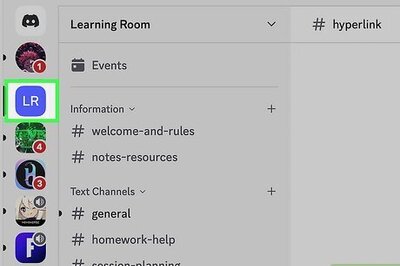
views
Several parents across the United State are trying hard to secure enough baby formula as supply disruptions along with a safety recall has led to curbs in the number of units parents can procure for their infants.
Even though some have pointed to the Abbott factory shutdown in Sturgis, Michigan in the US as one of the primary reasons for the outbreak, shortages predate the shutdown. The factory was shut down and recalled packages of Similac – Abbott’s flagship baby formula product – over contamination concerns. Later, the US Food and Drug Administration (FDA) said that Abbott did not maintain sanitary conditions in the factory.
Parents as well as single mothers were affected since Abbott is the chief supplier of baby formula to low and middle-income families and women through state benefit programs such as the Special Supplemental Nutrition Program for Women, Infants, and Children (WIC). Following the series of events more than half of the agencies administering WIC-covered brands are out of fresh stocks as mothers and parents look for fresh supplies.
Abbott has said that it is in touch with the US FDA and is taking steps to reduce the shortage.
Reports say that staff shortages due to Covid, increased demand for many products and services following the lifting of lockdown restrictions, the war in Ukraine which has put pressure on global supply chains which also have exacerbated the crisis.
Despite assurances given by Abbott and the US FDA, the situation is still worrisome. Datasembly, a data collection technology website for consumer packaged goods and retailers, showed that stores in more than 26 states in the US reported they were out of stock in the last week of April, but 7 states reported they were out of stock three weeks earlier.
The average out-of-stock rate also climbed to 40% in the last week of April, up by 30% compared to the data accessed in November when the nationwide out-of-stock rate was 11%.
Retail chains like CVS and Walgreens have now restricted customers from buying more than three cans at a time. A can weighs close to 350 grams and lasts for about 15 bottles which can feed a child only for a few days.
(with inputs from Associated Press, BBC, Datasembly and TIME Magazine)
Read all the Latest News here




















Comments
0 comment